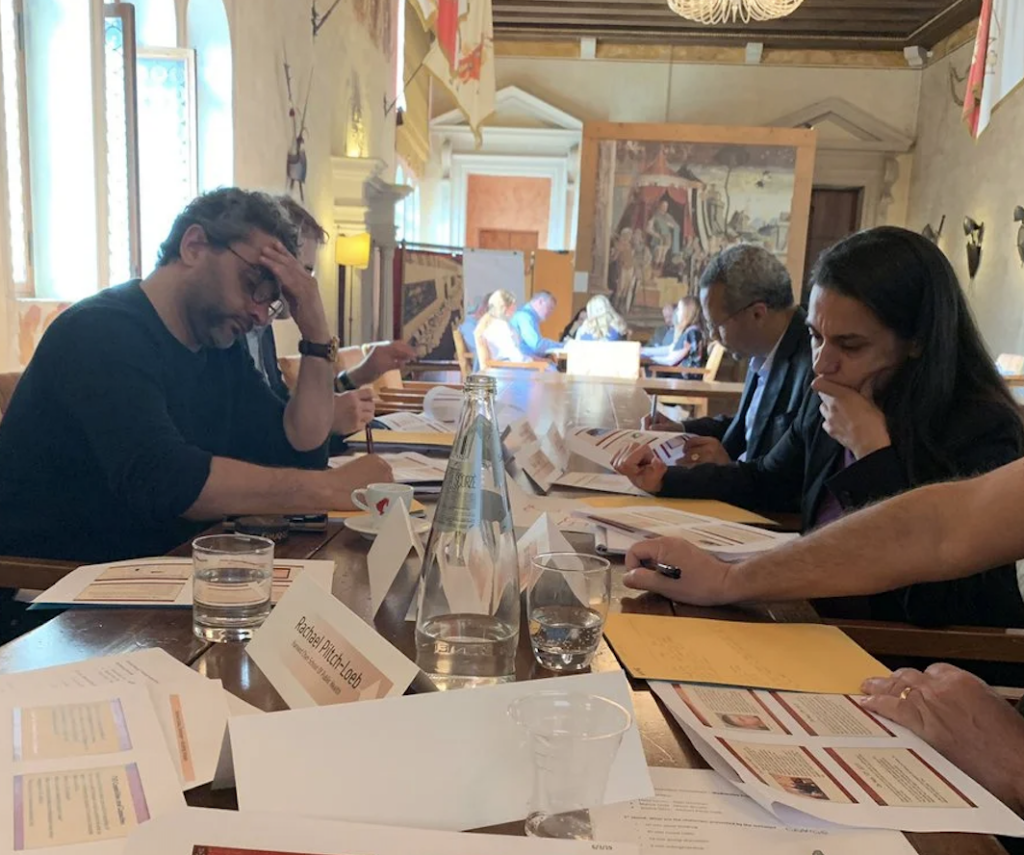Community Safety Evaluation Lab (CSE-Lab)
The Community Safety Evaluation Lab (CSE-Lab) focuses on evaluating programs designed to prevent violence and improve community safety.
677 Huntington Ave, Boston, MA 02115
Global Safety Evaluation (GSE) Network
The GSE Network was born as a network of practitioners, scientists, and government officials engaged in implementing evaluation methods applied to programs designed to prevent targeted violence.

GSE Network Virtual Workshop Platform
The GSE Network has hosted a series of webinars focused on evaluation science applied to prevention of violent extremism and targeted violence. The abstracts of each presentation have been published on the journal “Proceedings” vol 77 issue 1 https://www.mdpi.com/2504-3900/77/1. All presentations have been recorded and archived on a Harvard Canvas platform. The workshop was made possible with funding from the NATO Science for Peace and Security (SPS) Programme, the Department of Homeland Security Science & Technology Directorate (S&T), and the Swedish Contingencies Agency (MSB and Public Safety Canada. To see a full list of presenters and presentations, please click here. If you would like to have access to the recorded presentations free of charge, please write an e-mail with your job or university affiliation to: preparedness@hsph.harvard.edu.

Scenario-Based Techniques
The GSE Network is implementing scenario-based evaluation methods such as Nominal Group Techniques and Tabletop Exercises to integrate evaluation science into context-specific practice.
Nominal Group Techniques are implemented to bring together practitioners and government officials to identify system-level needs and to achieve consensus on priority areas for the prevention of targeted violence. These techniques are designed to include equal participation from all engaged stakeholders. To date, the techniques have been implemented in the US and Sweden. Our Scenario-Based Nominal Group Technique Toolkit can be accessed here.
Tabletop Exercises are implemented to bring together practitioners and government officials for training purposes and to test existing mechanisms, such as information-sharing capabilities.

Case Management Studies
The GSE Network develops case studies that describe the case management approach used by service providers (i.e. social workers, psychologists, law enforcement) with individuals referred to their attention due to being engaged in violent activities and associated with hate groups. The case studies are developed to understand what approach worked and what did not work. They consist of analysis of the services and organizational models implemented rather than of the characteristics of the individuals. The goals of these studies is to provide system analysis that lead to the identification of best practices as well as compare approaches across systems and countries.

International Workshops
The GSE Network meets during international workshops that bring together practitioners, government officials, and experts across the fields of evaluation science and targeted violence from NATO member and partner countries. These individuals collaborate on the nexus of similar points of interest in combating the phenomenon of targeted violence and understanding how science and diplomacy can inform the development of effective policies and practice.

Science Diplomacy
Science Diplomacy is the use of scientific collaborations among nations to address common problems and to build constructive international partnerships. The GSE Network represents an example of how evaluation science can help foster relationships across countries with the interest of preventing targeted violence. GSE members come together during workshops, collaborate to implement evaluation methods, and share lessons-learned on best practices. The platform provides scientists, interested stakeholders, and government officials an opportunity to coalesce their efforts to confront the phenomenon of targeted violence.